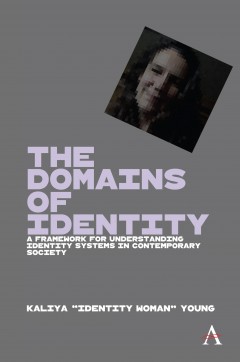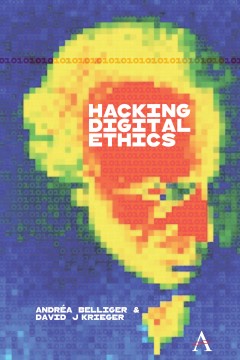Anthem Press
Ethics of Personal Data Collection
The Anthem Ethics of Personal Data Collection series publishes scholarly works at the intersection of data, ethics and digital technology in the 21st century. This series introduces the personal data movement by highlighting innovative research in public health, violence against women in public spaces, the energy sector, sexual violence in conflict, vocational training, insurance policy underwriting, individual control of enterprise data sharing, and data as labor. The series focuses primarily on the ethical concerns regarding personal data as a natural resource in the era of digital revolution.
THE ETHICS OF PERSONAL DATA COLLECTION IN INTERNATIONAL RELATIONS INCLUSIONISM IN THE TIME OF COVID-19

This volume attests to the fact that pressing global public health concerns are ever present as subjects of societal discourse and debate in developed and developing states. Moreover, the COVID-19 pandemic makes the omission of the ethics of personal data collection analysis in the international relations literature even more salient given the rise of contact tracing and increased uses of mobile phone Apps to track citizens by states and firms across the globe, as this volume’s chapters analyzing the responses to COVID-19 in Iran and Taiwan explain.
Intro from Colette Mazzucelli
“This volume represents a tremendously innovative, timely, and cutting-edge treatment of one of the most compelling challenges of our day and age: the focus on personal data collection, including geopolitical and cultural contexts, especially during the COVID-19 pandemic. Taken as a whole, its content is very impressive both in scope and depth.
Presenting primarily a non-Western perspective, the volume provides the reader with an important overview framing these challenges cogently and providing an international relations theory foundation that recognizes, synthesizes, and amplifies newer approaches in our field. Such approaches bridge a gap between older international relations paradigms and newer concepts that recognize non-state actor as well as non-Western nation roles.”
-Nanette Levinson, Co-Director, Internet Governance Lab, School of International Service, American University
“Few scholarly collaborations can genuinely work at the intersection of IR and international and human rights law, with the ability to engage the IR literature so robustly. Few volumes can be so thoroughly creative theoretically and yet so grounded in field studies and cases, bringing the details of analysis and context to life.
At its core, this volume practices what it preaches—the abject need to shift from a Eurocentric and state-centric default in IR inquiry into a holistic approach to inclusionism. Its content does this on an indisputably urgent topic—the fate of private data collection in a time of COVID-19, a period some fear is a dress rehearsal for increasing government intrusion into long standing human rights and freedoms via emergent technologies. Without the prima facie inclusion of such lenses as gender, geopolitics, culture, concern for nature and climate, and ethnic and religious pluralism into our standard IR theories, it is unlikely that scholars will be able to help decision makers come to the right policies for dealing with personal privacy.”
-Corri Zoli, Director of Research, Institute for Security Policy & Law, Syracuse University College of Law / Maxwell School of Citizenship & Public Affairs
Previous Volumes
The Domains of Identity

Hacking Digital Ethics
